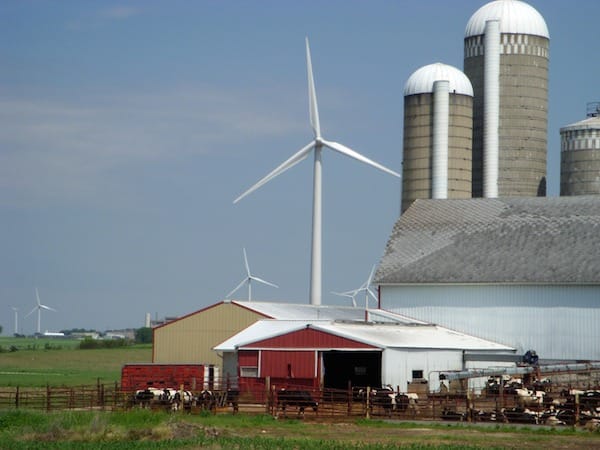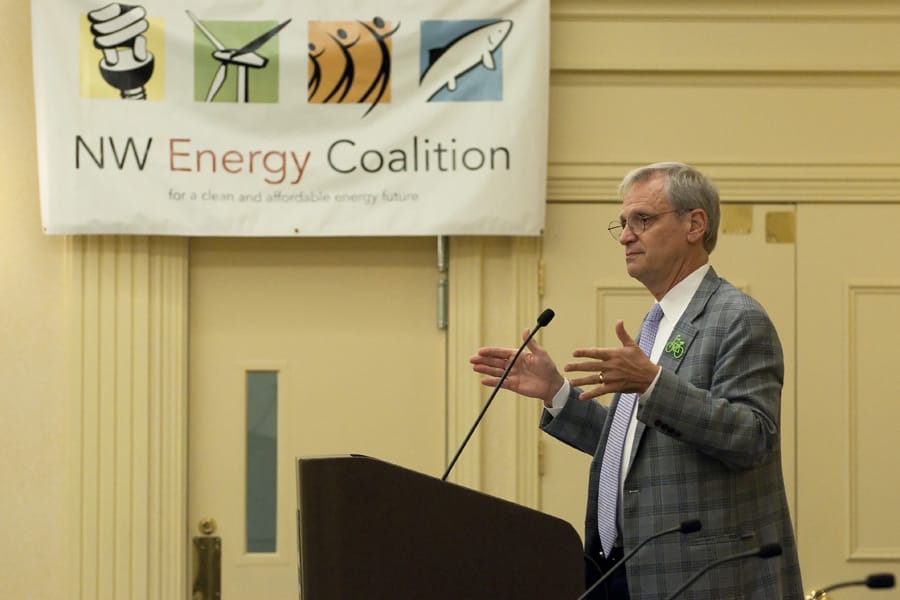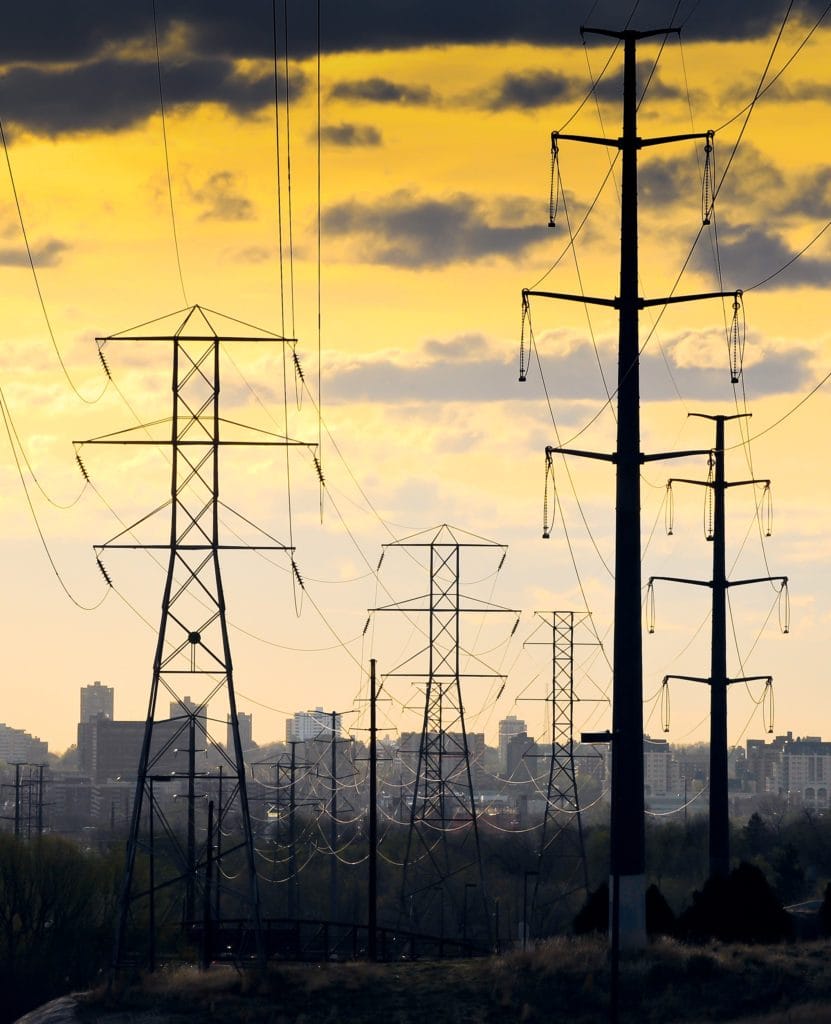Policy Archives
The Columbian article: All-renewable energy eyed for Boeing plant
Boeing has announced it will assemble its 737 airplanes with renewable energy. The company will buy renewable energy credits from Puget Sound Energy for wind power produced at the Wild Horse Wind and Solar facility. NWEC communications director Marc Krasnowsky says, “They’re basically turning their fossil power green, and that’s laudable.”
Read MoreSightline article: The new Oregon carbon tax report is out
Portland State University’s Northwest Economic Research Center (NERC) modeled different carbon tax scenarios in Oregon that would start at $10 per ton and increase at different rates over time. In nearly ever scenario, Oregon was able to reach its goal of a 10% carbon reduction below 1990 levels by 2020. NERC concluded that a carbon tax would generate significant state revenue and thousands of jobs.
Read MoreAppliance Standards Awarness Project blog post: New standards to improve efficiency of clothes washers in laundromats and apartments
The U.S. Department of Energy (DOE) issued new efficiency standards today that will reduce the energy and water use of commercial clothes washers, which are used in laundromats and multi-family buildings. On a national level, the new standards will save 70 trillion Btus of energy over 30 years of sales, an amount equivalent to the annual energy use of 390,000 U.S. households, and yield net present value savings for customers of $240 to $530 million.
Read MoreOregonian guest opinion: How wind power helps rural Oregon
Erin Hansell-Heideman of Ione, Oregon explains how renewable energy development is an economic boon for rural communities. Wind farms generate clean electricity, create thousands of rural jobs and accrue millions of dollars in revenue for schools. Hansel-Heidman says, “By harvesting Oregon’s abundant wind resources we are opening up opportunities for rural communities and other family farms throughout the state.”
Read MoreNWEC comments on EPA Clean Power Rule
Click here to view the NW Energy Coalition’s comments on the EPA’s Clean Power Rule.
Read MoreNorthwest electricity consumers enjoying higher and higher energy savings
Northwest utilities and their customers continue to beat their regional energy efficiency targets and remain on-course to exceed the five-year savings goal established by the 6th Northwest Power and Conservation Plan. In 2013, the region achieved 268 average megawatts of energy efficiency. According to the region’s official power planning agency, the Northwest Power and Conservation Council, that’s enough negawatts (energy savings) to satisfy the electricity needs of more than 180,000 Northwest homes.
Read MoreIdaho Statesman article: PUC approves two projects on Idaho Power grid
Solar power is a real deal right now and Idaho Power got state approval for two sales contracts with developers. The Idaho Public Utilities Commission approved the two contracts Friday for the two projects – one in Kuna and a second in Grand View – that would produce 120 megawatts, enough power to serve 83,000 average-sized homes. The projects are scheduled to be completed in 2016.
Read MoreNW Clean & Affordable Energy Conference draws largest-ever crowd; Coalition adds four new members
Attendees learned about influencing behavior to fulfill energy efficiency potential; discussed opportunities and challenges to cleanly replacing aging, dirty power sources, considered consumer protection and utility revenue concerns surrounding expanded solar and other distributed generation; and got up to speed on how changing the Columbia River Treaty could affect power generation and other river uses in the basin.
Read MoreCrosscut artice: Washington businesses unite on climate action
More than 100 businesses – from REI and Virginia Mason to Taylor Shellfish and Microsoft – launched a declaration calling for “climate action.” The businesses recently endorsed the Washington Business Climate Declaration, a statement by businesses and individuals on the need for action against global warming, saying, that the Northwest firms “support using energy efficiently, investing in cleaner fuels, advancing renewable energy, and reducing greenhouse gas emissions.”
Read MoreIn victory for clean energy development, court upholds transmission planning order
In a major win for clean energy development, a U.S. Court of Appeals panel this summer unanimously upheld a Federal Energy Regulatory Commission (FERC) directive aimed at modernizing transmission planning around the country. The decision gives strong support to the contention that utility-by-utility transmission planning is not enough, because energy resources and transmission lines are already widely shared across the power grid. Regional planning is needed to capture important benefits for clean energy, the environment and consumers.
Read More









